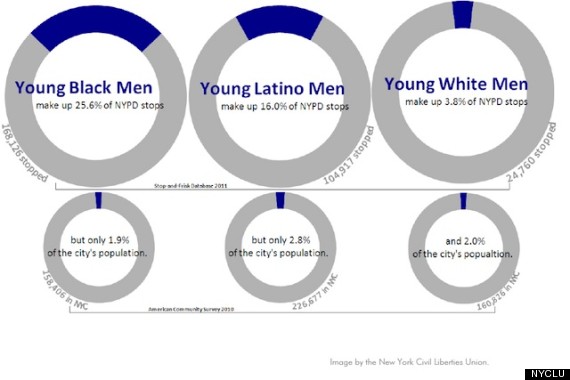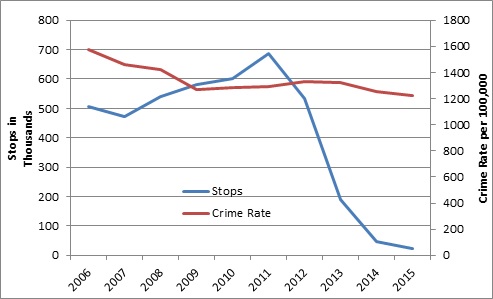The policy allows police to search for weapons under certain circumstances - primarily anything related to the likelihood that a crime is about to take place. This raises 4th Amendment questions - since these searches are based on a looser standard than probable cause, equal protection issues - since police can use racial identity as a criteria for conducting a search, as well as simple questions about whether the policy is effective in reducing crime.
Below you'll see a handful of charts that display data regarding the policy. Look through them and see if you can find out what they are telling us about it. You can go in a variety of directions with this.









